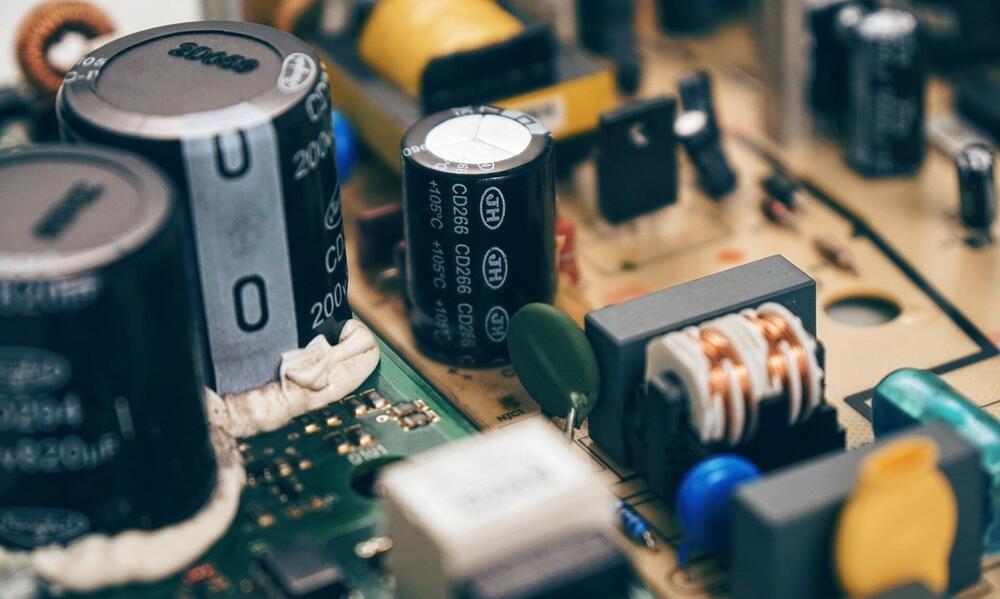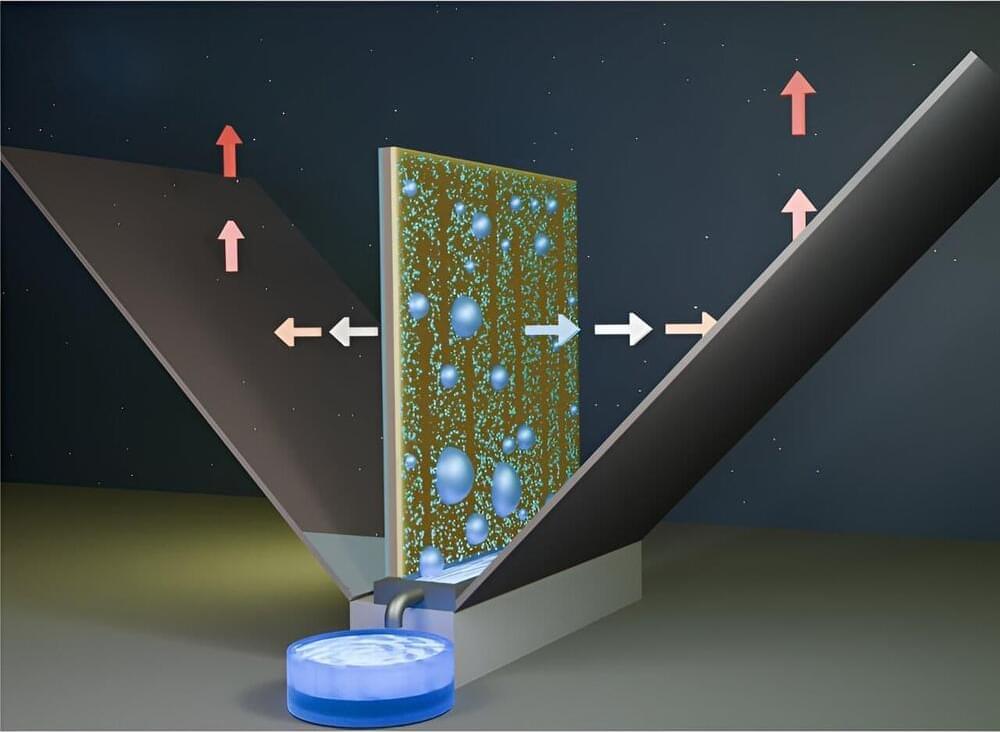NoviOcean’s innovative Hybrid Energy Converter combines wave, wind, and solar power, generating double the energy of wind alone.
Category: sustainability – Page 112

Scientists develop a new model of electric double layer
A new model accounts for a wide range of ion-electrode interactions and predicts a device’s ability to store electric charge. The model’s theoretical predictions align with the experimental results. Data on the behavior of the electric double layer (EDL) can aid in the development of more efficient supercapacitors for portable electronics and electric vehicles. The study has been published in ChemPhysChem.

New cooling system works on gravity instead of electricity
Its abundance of sunlight and heavy investment in solar cell technology has positioned Saudi Arabia well in its transition to becoming a leading exporter of renewable energy. Indeed, solar energy currently makes up more than 80% of the Kingdom’s green energy capacity. However, these cells bring a twisted irony, as their operation exposes them to overheating risks. Cooling systems are therefore necessary, but many depend on electricity.
An international research team led by KAUST Professor Qiaoqiang Gan has designed a potential solution. Their device needs no electricity, as it extracts water from the air using nothing more than gravity and relies on cheap, readily available materials.
Along with keeping the solar cells and other semiconductor technologies cool, the water can be repurposed for irrigation, washing, cooling buildings on which the solar cells are placed, and other applications.
New water purifier could drive sustainable farming in changing climate
New device boosts hydroponic farming for efficient, eco-friendly food production:
A new water purification device offers a cost-effective solution for hydroponic farming, supporting more sustainable food production.

Boom Supersonic’s New Overture Aircraft is Set to Be Faster Than the Concorde
American start-up Boom Supersonic is planning to develop the very first supersonic aircraft powered by 100% sustainable fuel. The aircraft, named Overture, would succeed Concorde in providing ultrafast connections between Europe and the United States, more than 20 years after the latter ceased operation. The new aircraft also echoes its predecessor’s unique, long and slender design.
Boom Supersonic is currently flying a demonstrator, the XB-1, over the Mojave Desert in California. A first supersonic flight (at Mach 1) is now expected by the end of 2024, following the green light given from the Federal Aviation Administration (FAA). All these tests are designed to ensure the aircraft’s reliability and maneuverability. Above all, they lay the foundations for the firm’s future Overture plane.
The Race to Harness Quantum Computing’s Mind-Bending Power
Quantum computers have the ability to harness the mysterious effects of quantum physics, making them a game changer for science. Professor Hannah Fry explains how they work on The Future with Hannah Fry.
With the promise of unimaginable computing power, a global race for quantum supremacy is raging. Who will be first to harness this new technological force, and what will they do with it?
——-
Like this video? Subscribe: https://www.youtube.com/Bloomberg?sub_…
Get unlimited access to Bloomberg.com for $1.99/month for the first 3 months: https://www.bloomberg.com/subscriptio…
Bloomberg Originals offers bold takes for curious minds on today’s biggest topics. Hosted by experts covering stories you haven’t seen and viewpoints you haven’t heard, you’ll discover cinematic, data-led shows that investigate the intersection of business and culture. Exploring every angle of climate change, technology, finance, sports and beyond, Bloomberg Originals is business as you’ve never seen it.
Scientist develops revolutionary technology that turns air pollution into valuable resource: ‘We can directly use those converted chemicals and fields for other applications’
A new device at the University of Central Florida captures carbon dioxide and turns it into useful products.

China’s Dominance in the Solar Panel Supply Chain
You might’ve heard comments about how western powers have been falling behind in the solar game. This chart shows how very real the Chinese dominance in that field is! Source:
The supply chain is key for the renewable energy revolution, and this chart visualizes where the world’s solar panels are manufactured.
New storage solution poised to revolutionize the energy sector with groundbreaking thermal technology: ‘Critical to reach net-zero’
An innovative thermal energy storage system uses sand to store and release renewable energy without traditional batteries.

Revolutionizing E-Waste Recycling: New Methods for Metal Recovery
How can electronic waste, also known as e-waste, be recycled without resulting in negative environmental impacts that are often produced with traditional e-waste recycling methods? This is what a recent study published in Nature Chemical Engineering hopes to address as a team of researchers from Rice University investigated a novel approach for improving e-waste recycling while mitigating the negative impacts on the environment. This study holds the potential to help researchers, climate conservationists, and the public better understand how they can contribute to a cleaner environment through recycling.
“Our process offers significant reductions in operational costs and greenhouse gas emissions, making it a pivotal advancement in sustainable recycling,” said Dr. James Tour, who is a T.T. and W.F. Chao Professor of Chemistry at Rice University and a co-author on the study.
For the study, the team built upon past research conducted by Dr. Toru involving flash joule heating (FJH), which uses electric currents to break down metals into other materials. Using FJH for e-waste, the researchers successfully removed precious metals, including tantalum, indium, and gallium, which have commercial uses in capacitors, LCD displays, and semiconductors, respectively. Additionally, this new method was found to provide increased efficiency for metal purity and number of metals, also called yield, at 95 percent and 85 percent, respectively, along with significantly reducing environmental harm since this method does not require acids or water for its reaction.